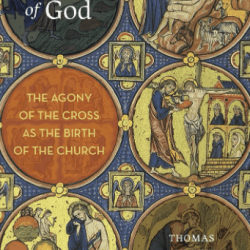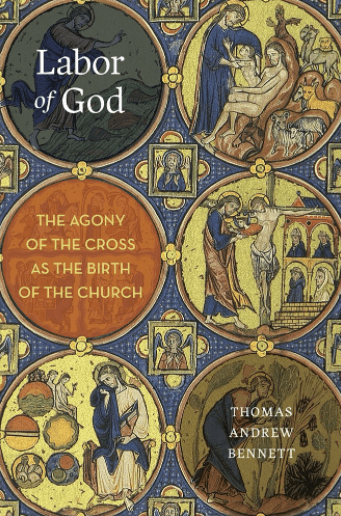 Holy Week culminating in Easter Sunday is the pivotal week and powerful week in the Christian calendar because it remembers and celebrates the central events in the Christian story- crucifixion and resurrection. The next two chapters of Tim Keller’s book The Reason for God focus on these two events – crucifixion (Ch. 12) and resurrection (Ch. 13).
Holy Week culminating in Easter Sunday is the pivotal week and powerful week in the Christian calendar because it remembers and celebrates the central events in the Christian story- crucifixion and resurrection. The next two chapters of Tim Keller’s book The Reason for God focus on these two events – crucifixion (Ch. 12) and resurrection (Ch. 13).
According to Keller The Gospel of Christ – the good news – is wrapped up in the story of the cross. This story however causes a great deal of consternation in our western world. Why was sacrifice required? Why did Jesus die? Isn’t the appeasement of the wrath of God best classed as divine child abuse — a remnant of an older more primitive society?
To be fair, Keller never uses the term “wrath of God” in this chapter, and he casts the story of the atonement in terms that bear little resemblance to typical presentations of penal substitution.
So what does he say?
First: Forgiveness always requires sacrifice. When we forgive we bear the consequence, the suffering, ourselves rather than demanding retribution. No one “just forgives” any grievous wrong. How much more then for God? God did not, then, inflict pain on someone else, but rather on the Cross absorbed the pain, violence, and evil of the world into himself. This was not just an example, but an ultimate act of forgiveness. Of course Keller does go a bit beyond this as well: “this is a God who becomes human and offers his own lifeblood in order to honor moral justice and merciful love so that some day he can destroy all evil without destroying us.” (p. 192)
Second: Real love involves a personal exchange. More than this, genuine life-changing love requires substitutional sacrifice, benefiting the other at the expense (large or small) of ourselves. When the needs of the other are large the sacrificial cost, the expense, is also large. “how can God be a God of love if he does not become personally involved in suffering the same violence, oppression, grief, weakness, and pain that we experience?” (p. 195) The answer is that God can’t – and the Christian story is that the God of love does become personally involved. “God, in the place of ultimate power, reverses places with the marginalized, the poor, and the oppressed.” (p. 196)
According to Keller the story of the cross involves forgiveness, sacrifice, substitution, justice, mercy, reversal, and identification. God for us. The act – the historical event - is the turning point in human history.
The Great Reversal. In highlighting the great reversal in the cross Keller quotes NT Wright from Simply Christian:
This pattern of the Cross means that the world’s glorification of power, might, and status is exposed and defeated. On the Cross Christ wins through losing, triumphs through defeat, achieves power through weakness and service, comes to wealth via giving all away. Jesus Christ turns the values of the world upside down. As N. T. Wright says:
The real enemy, after all, was not Rome but the powers of evil that stood behind human arrogance and violence … [On the cross] the kingdom of God triumphed over the kingdoms of this world by refusing to join into their spiral of violence. [On the cross, Jesus] would love his enemies, turn the other cheek, go the second mile.
This upside-down pattern so contradicts the thinking and notice of the world that it creates an “alternate kingdom,” an alternate reality, a counterculture among those who have been transformed by it. In this peaceable kingdom there is a reversal of values of the world with regard to power, recognition, status, and wealth. (p. 196)
So Keller sees both costly forgiveness and reversal at play in the Cross:
To understand why Jesus had to die it is important to remember both the result of the Cross (costly forgiveness of sins) and the pattern of the Cross (reversal of world’s values). On the cross neither justice nor mercy loses out – both are fulfilled at once. Jesus’s death was necessary if God was going to take justice seriously and still love us. (p. 197)
The Power of the Cross. Of course this idea that the Cross actually accomplished something profound is not a popular view in our world today. Keller opens this chapter with a quote from Ghandi in An Autobiography
I could accept Jesus as a martyr, an embodiment of sacrifice, and a divine teacher. His death on the cross was a great example to the world, but that there was anything like a mysterious or miraculous virtue in it, my heart could not accept. (p. 186)
Not only is the power of the Cross, the idea that something profound was accomplished in the crucifixion, an unpopular view in our world, it seems an unpopular view in much of the church. The response to my post on Gospel or Religion leads me to expect, perhaps, some push back against anything Keller might say about the true story of the Cross and the atoning sacrifice of Christ. Yet the Gospels lead up to and dwell on the crucifixion. If the gospels are the Gospel – the crucifixion is central. And Paul begins his description of the gospel proclamation in 1 Corinthians 15:3
For what I received I passed on to you as of first importance: that Christ died for our sins according to the Scriptures.
John points out in 1 John 4:10
This is love: not that we loved God, but that he loved us and sent his Son as an atoning sacrifice for our sins.
And Colossians 1:19-22
For God was pleased to have all his fullness dwell in him,and through him to reconcile to himself all things, whether things on earth or things in heaven, by making peace through his blood, shed on the cross.
Once you were alienated from God and were enemies in your minds because of your evil behavior. But now he has reconciled you by Christ’s physical body through death to present you holy in his sight, without blemish and free from accusation.
Rather than push against some of the more extreme expressions of penal substitution found among (neo)-reformed preachers and theologians, I would ask that we focus on what is right or wrong with this outline of Keller’s chapter on the cross. And this leads to a range of important questions well worth some serious discussion.
How would you describe the importance of the cross?
Is the importance in example? in story? or is it more?
What do you think of Keller’s view of forgiveness and love involving exchange?
Is the necessity of sacrifice an outgrown remnant of an earlier time?
What is the (True) Story of the Cross?
If you wish to contact me directly you may do so at rjs4mail[at]att.net
If interested you can subscribe to a full text feed of my posts at Musings on Science and Theology.










